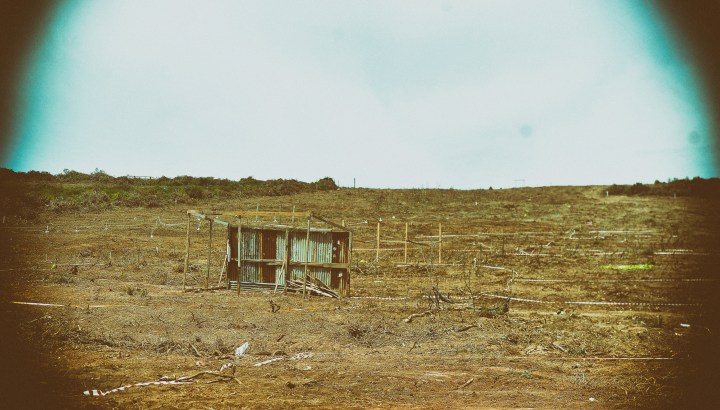ParlyBeat
Land expropriation shambles highlights how public participation at Parliament is not working

As the proposed constitutional amendments to allow land expropriation without compensation is facing its first court challenge, Parliament now has another opportunity to deal with the great Achilles’ heel of its legislative mandate — meaningful public participation.
This article was first published by ParlyBeat
On 15 November 2018, after nationwide public hearings spanning more than two months, the Joint Constitutional Review Committee in Parliament adopted its report in favour of amending section 25 of the Constitution. Lobby group AfriForum, however, launched a court application to have this report set aside, citing serious concerns over the public participation process. Certain opposition parties also hinted at possible court challenges based on the process followed.
Parliament has since indicated it will oppose AfriForum’s application. The national legislature has also chosen to pride itself on what it labels a process that will be remembered as one of the “most consultative, participatory processes of our democracy – outside of our regular non-racial elections”.
However, concerns over the quality of public participation in law-making are not limited to the controversial section 25 issue alone. Neither is it a simple dichotomy between those for and against land expropriation without compensation. The concerns raised in this court challenge and by others present Parliament with yet another opportunity to review and improve its public participation model.
Public participation ‘ritualistic and diluted’
Projects manager at the Parliamentary Monitoring Group (PMG) Rashaad Alli told ParlyBeat that Parliament’s public participation process, in general, is often “ritualistic, diluted and falling short of its intended purpose”.
PMG has been monitoring, capturing and researching proceedings in Parliament since 1995. According to Alli, PMG’s research found most participants complain that meaningful public participation is often lacking.
“[We also found] MPs are not always open-minded and can be hostile to views they disagree with.”
Referring to the public hearings on expropriation without compensation, he said they found Parliament, in this case, was overwhelmed and unprepared at the volume of submissions received for the land expropriation hearings.
“It did not have the capacity to process the submissions and had to outsource this function,” Alli said.
In its Public Participation Survey of 2017, PMG asked survey participants whether they were satisfied that their submissions had been “adequately taken into account or considered”. The survey found 30% of respondents were dissatisfied and 37% felt Parliament “did not take their public input seriously”. Almost 80% of the respondents also felt the committee’s feedback after their submissions during the public hearings was inadequate.
Some of the challenges identified in the survey related to a lack of time and capacity. Some respondents also noted they felt “dejected” when stopped halfway through their presentations because “time had run out”.
Other observations included respondents feeling that committee members “do not seem to listen during hearings, ‘belittle’ points of view that are generally not agreed with and that some chairpersons were too ‘heavy handed’ and thus intimidating for participants”.
Much of the same…
Fast-forward to October and November 2018, and the observations remain the same after Parliament had its final rounds of submissions on the proposed section 25 Constitutional amendment. Selected organisations and individuals were given 10 minutes each to deliver their submissions and MPs thereafter had a chance to ask questions for clarification.
These questions often descended to racial insults and nit-picking of issues and views not consistent with some MPs’ perspectives. Some MPs who disagreed with the public input given, went as far as to claim the presenter of the Land Access Movement of South Africa’s submission was “in white pockets” and it views were “[in]consistent with people who are landless”.
The organisation Women on Farms Project (WFP) was scheduled to make its submission on the same day. According to WFP deputy director Carmen Louw the organisation was given a set time to appear before the committee, but had to rush with a whole contingent of female farmworkers when the committee changed the time slot at the last minute.
“These oral submissions are important to us as we believe the female farmworker community brings a unique perspective to the debate on land,” Louw said.
“We are grateful for any opportunity to give input and go through great lengths to get our people there with us.”
On this day about 10 female farmworkers, many taking time off from work on farms in the Winelands, accompanied the WFP presenters.
“So, it is a big thing for the women to go to Parliament and be heard.” WFP’s submission was also afforded only 10 minutes and after some pleas only one of the farmworkers could read her letter in Afrikaans to MPs. No MP asked for a translation or engaged with it, and Louw said this added to perceptions that these hearings are often just a box-ticking exercise.
Committee co-chair Stan Maila told ParlyBeat the committee is “satisfied” with how the public participation process unfolded. According to him the participation process was even extended to allow for more submissions.
“We cannot pass laws without the people. We have never in democratic South Africa seen a public participation process conducted with such rigour,” he said.
“And time was of the essence. We had to manage and select among those who had serious and quality contributions to make.” Maila also said it is the responsibility of organisations’ leaders to explain the process to their members.
An earlier report published last year — the High-Level Panel Report on the assessment of key legislation and the acceleration of fundamental change — recommended that the legislative process be “overhauled”, especially given a series of judgments from the Constitutional Court about the need for effective public participation in the legislative process.
The panel, too, raised serious concerns over insufficient public hearings and their lack of inclusivity. DM


















 Become an Insider
Become an Insider